About Oceans Behavioral Hospital
Oceans Behavioral Hospital of Abilene is a mental health and substance use disorder treatment facility in metropolitan Abilene, Texas. They work with adults and older adults. You can get part time treatment for alcoholism and cocaine addiction.They’ll also treat any addiction related mental health challenges such as anxiety, depression or PTSD.
You’ll be treated in a hospital setting. They believe your body needs to be strong and healthy for your mind to heal. To make this possible, they serve nutritious meals and have a gym onsite for exercise.
Along with counseling and group sessions, you can get alternative therapy such as yoga for trauma classes. This type of yoga allows your body to release tension and stored trauma. It reduces stress by lowering blood pressure and easing muscle tension. Aromatherapy massages are available as well. Massage therapists use combinations of essential oils for different purposes.
What I appreciate is their STAR Military program. They primarily serve active duty military, veterans, and their families from the nearby Dyess Air Force Base. For these individuals, they use prolonged exposure therapy. This is especially helpful for those with active trauma, or a history of trauma.
Chronic pain often causes people to turn to chemicals and can lead to addiction. They provide non-pharmacological pain management therapy as an alternative. This may be in the form of psychological techniques like guided imagery, acceptance and commitment therapy or biofeedback. Physical intervention such as acupuncture, heat or cold, or manual manipulation can be very effective for those who’ve been struggling.
Addiction Treatment Programs
Alcohol Rehab
If you’re ready to overcome alcohol use disorder, an alcohol rehab in Texas can give you the tools you need. High-quality treatment lays a foundation for sobriety and helps prevent relapses by giving you new ways of thinking, better coping skills, and a better understanding of key life skills such as emotional regulation and communication.
Dual Diagnosis
Many people with addiction issues also have a mental health diagnosis, which is known as a dual diagnosis. Be sure to find a rehab in Texas that can treat both. A mental health diagnosis can feed into an addiction, making both worse. In a dual diagnosis program, these concerns are addressed along with typical evidence-based detox, inpatient treatment, and outpatient care.
Opioid Addiction
The goal of an alcohol rehab in Texas is to give you the tools and skills you need to achieve long-term recovery. Whether you need detox, inpatient treatment, or outpatient care, an opioid program will help you build a new lifestyle based on healthy coping mechanisms, better relationships, and a new way of thinking about life.
Adult Program
An adult program in Texas addresses the unique need of adults, such as finding secure housing, building a career, and raising a family. Adults often have challenges related to their careers, raising a family, and handling responsibilities. These concerns are addressed during evidence-based detox, inpatient treatment, and outpatient care.
Military Rehab
A military rehab in Texas provides an understanding environment that makes it easier to work on your long-term recovery. Service members and veterans have often experienced trauma civilians can’t imagine. These concerns are addressed along with typical evidence-based detox, inpatient treatment, and outpatient care.
Women's Rehab
If you’re a woman struggling with substance use, consider a women’s rehab program in Texas. Women often have questions about building their careers, raising children, and building healthy relationships. These concerns are addressed along with typical evidence-based detox, inpatient treatment, and outpatient care.
Men's Rehab
Choosing a men’s rehab in Texas can be a great way to manage gender-specific issues while also addressing substance use. Men often have questions about building their careers, being fathers, and having healthy communication styles. These concerns are addressed along with typical evidence-based detox, inpatient treatment, and outpatient care.
Young Adult Rehab
Young adult rehabs in Texas address a wide range of substance use issues while also helping clients transition into adulthood. Young adults often have questions about starting their careers, having a family, and living independently without overspending. These concerns are addressed along with typical evidence-based detox, inpatient treatment, and outpatient care.
Insurance Coverage
Self-pay options
When you use self-pay for rehab in Texas, you have a chance to choose any treatment center you like. Self-pay, also known as private pay, involves writing a check, using a medical loan from a bank or credit union, or sending money electronically. Payment arrangements may vary depending on the level of care.
Medicaid
How do you pay for rehab in Texas? If you have Medicaid, consider using it to pay for some or all of the costs of treatment. Medicaid covers multiple levels of care, and you may have no out-of-pocket costs. However, you’ll need to choose a treatment center that accepts Medicaid.
Medicare
When looking for ways to pay for rehab in Texas, consider Medicare. Your Medicare plan can pay for some or all of the costs of rehab, although you will want to check on the full details. You may have some out-of-pocket costs such as copays or deductibles.
Private insurance
When you’re planning to use private insurance to pay for rehab in Texas, there are a few details to keep in mind. Your insurance plan can cover some or all of the cost of treatment. You’ll need to contact your insurer to find out what centers are in-network with your plan and what out-of-pocket costs you may be responsible for.
Levels of Care
- 1
Inpatient Rehab
There are multiple options for addiction treatment in Texas. During inpatient treatment, you live at the facility and are able to focus on creating a new way of life. Inpatient treatment programs generally last 30 to 90 days and include counseling and classes on emotional regulation, coping strategies, and other vital life skills.
- 2
Outpatient Rehab
Attending outpatient treatment in Texas allows you to get evidence-based care without living in the facility, helping you establish long-term recovery. Finishing residential treatment is a big step, and outpatient care allows you to have support while you learn to apply your new skills and habits in real life situations.
- 3
Aftercare Support
Overcoming substance use is a lifelong process. Aftercare in Texas gives you the support you need to stay sober. Relapse prevention is a lifelong project, and having aftercare support like sober housing, recovery-focused activities, and a place to build healthy friendships can make all the difference.
Therapies
Cognitive Behavior Therapy
In Texas, cognitive behavioral therapy (CBT) helps you identify wrong thinking that can create impulsive actions. This makes it much easier to reach long-term recovery. As you learn to identify thought disortions, your confidence in your ability to manage a wide variety of situations will grow. You’ll have the tools you need to address problems and manage triggers in a healthy way.
Family Therapy
Attending family therapy in Texas is a way to address broken relationships and dysfunction, helping you establish long-term recovery. Substance use treatment includes detox, inpatient treatment, and outpatient care, and family therapy may be a part of each of these stages. The goal is to help families address past events and broken relationships and develop healthy ways of relating to each other.
Group Therapy
Attending group therapy in Texas is a way to overcome shame and isolation, helping you establish long-term recovery. Sessions generally last 60 to 90 minutes and give you a chance to discover others’ experiences, hear about the impact of substance use, and learn important new life skills.
Individual Therapy
During individual therapy in Texas, clients work with a professional to address specific individual concerns. During individual therapy, you have the freedom and confidentiality to share personal issues and past experiences that may impact your substance use. Your therapist will help you work through those concerns and develop new ways of handling them.
Trauma Therapy
Trauma-informed therapy in Texas can provide a way to process past events and create better coping strategies as you work through substance use treatment. Because trauma can be a significant trigger for substance use, trauma-informed therapy will help you understand what happened to you, realize that it was wrong, and create a healthier way of relating to that memory and the emotions you feel.
Accreditations
Location
Contact Oceans Behavioral Hospital
Top Drug Rehab Centers in Texas
-
 Texas
TexasEl Paso Behavioral Health System
1900 Wyoming Avenue El Paso, Texas 79903
-
 Texas
TexasLa Hacienda Outreach
7400 Blanco Road, Suite 129 San Antonio, Texas 78216
-
 Texas
TexasRiverwalk Ranch
6960 Dick Price Road Mansfield, Texas 76063
-
 Texas
TexasGreenhouse Outpatient Treatment Center
2301 Avenue J Arlington, Texas 76006
-
 Texas
TexasDoris Miller Department of Veterans Affairs Medical Center
4800 Memorial Drive Waco, Texas 76711
-
 Texas
TexasSymetria Recovery College Station
1651 Rock Prairie Road, Suite 101 College Station, Texas 77845
-
 Texas
TexasStonegate Center
7510 Fm 1886 Azle, Texas 76020
-
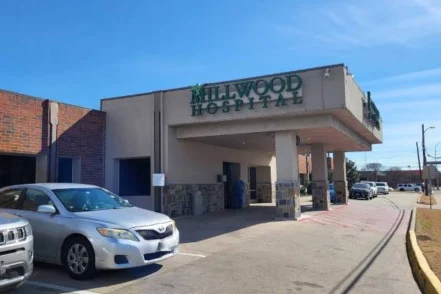 Texas
TexasMillwood Hospital
1011 North Cooper Street Arlington, Texas 76011
-
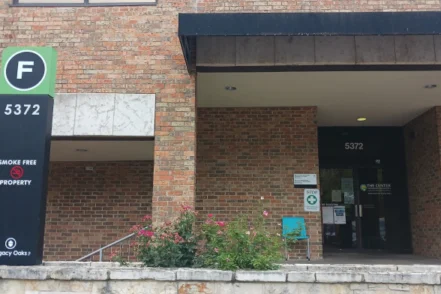 Texas
TexasCenter for Healthcare Services Northwest Clinic
5372 Fredericksburg Road, Building F San Antonio, Texas 78229
-
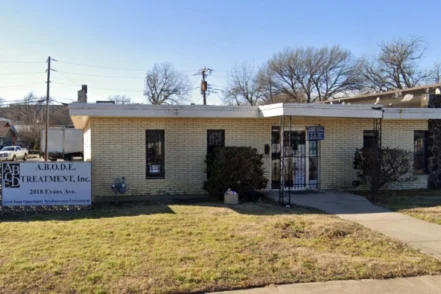 Texas
TexasABODE Treatment Fort Worth Evans Avenue
2018 Evans Avenue Fort Worth, Texas 76104
-
 Texas
TexasNew Season Dallas County Treatment Center
123 East Colorado Blvd Dallas, Texas 75203
-
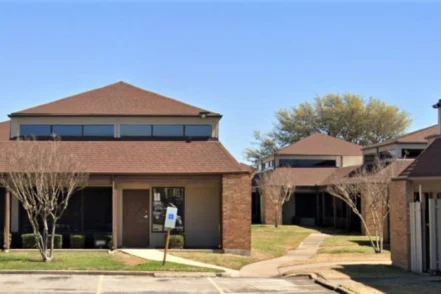 Texas
TexasChemical Dependency Health Services CDHS
214 Billings Street, Suite 240 Arlington, Texas 76010
-
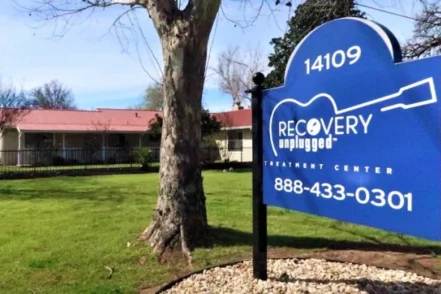 Texas
TexasRecovery Unplugged Austin
14109 Fm 969 Austin, Texas 78724
-
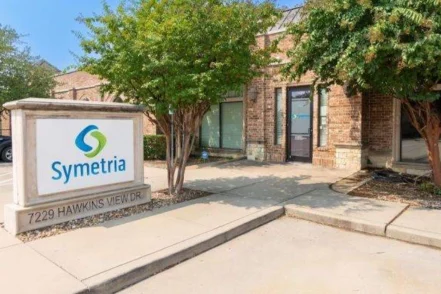 Texas
TexasSymetria Recovery Fort Worth
7229 Hawkins View Drive Fort Worth, Texas 76132
-
 Texas
TexasAliviane Imastar
1626 Medical Center Street El Paso, Texas 79902
